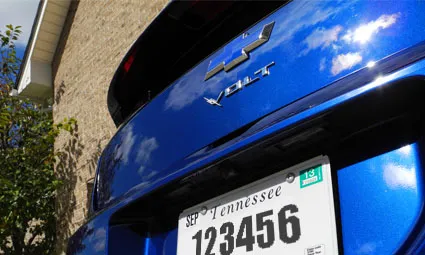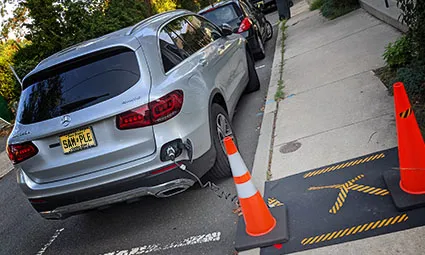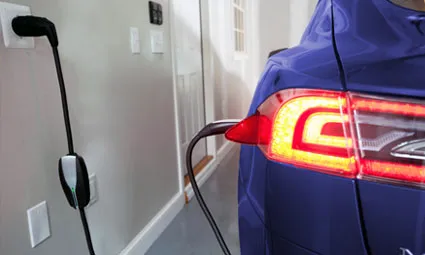If you're in the market for an electric car, often referred to as an EV, one of the first things you'll think about is how to charge it. It's the most significant change a new EV driver will face. You can't just drive up to the local gas station, stop at a pump, and drive away with a fully fueled car 5 minutes later. Instead, electric vehicles either need to charge overnight at home or at a public charging station. Most electric cars on the market today have a range of between 150 - 400 miles, so depending on your driving needs, you might need to top up every day or once a week. Of course, the easiest, and most convenient way, to charge your car is to have an EV charger at your home, but that's an additional cost.
Factors to consider when deciding if you should purchase an EV charger for your home
The type of electric car you have

The best place to start is to know if your vehicle is a plug-in hybrid or a battery-electric vehicle. A plug-in hybrid, like the Chevrolet Volt, has a gas engine that will charge the battery when it's low. Because of that ability, these cars don't usually have to add a lot of range to the battery when at home. That means they don't necessarily need an expensive charger to fill up quickly. In comparison, fully electric vehicles like the Chevrolet Bolt, Nissan Leaf, or Tesla Model S need to be plugged in to add range. That process can be pretty slow on the basic chargers, so a more powerful charger may be beneficial.

Your daily commute and driving habits
The average American commutes 16 miles to work each way, so a level 1 charger can easily replenish those miles overnight. But for those with longer commutes or who run a lot of errands, having a relatively fast charger at home gives them peace of mind and the convenience of getting a full charge quickly. Therefore, upgrading to a level 2 charger, which can charge up to 5 times faster than a level 1 charger, might be beneficial. A level 2 charger will typically deliver between 12 - 60 miles of ranger per hour.
Your type of home

If you have a dedicated garage for your car or a driveway that goes right up to your house, installing an EV charger can be a lot easier. Drivers who live in multifamily apartments, condominiums, or the city might have a more challenging time installing a charger. The EV charging station will need to be connected to your home's breaker box, so the further away the car is located, the more complexity and cost are involved.

Your personal preferences and risk aversion
Are you someone who panics when your phone battery is below 75%? Do you pull over to a gas station before your tank even gets to half-empty? Then having a fast EV charger at home might be worth it for you. You can always leave the house knowing you have a full battery, and when you get home, you can quickly recharge it back for your next trip.
On the contrary, if you have a usual routine and know exactly how much you drive every day, and it's under the range of overnight charge, the extra expense to add a level 2 charger to your home might not be worth it.
Bottom line: Do you need an EV car charger in your home?

In the end, the decision is a personal one that depends on you, your car and your driving habits. Consider the factors above and weigh them against the cost of having an EV charger installed in your home.
An alternative to home charging is using publicly available charging stations to top up your EV while you're out. Currently, there are over 44,000 charging stations in the US. If you're in an area with good coverage, you may never have to charge your car at home at all. However, it is important to note that costs for public charging vary between stations, so charging in public may be more expensive than at home in the long run.

How much does an EV charger cost?
The cost of an EV charger can vary depending on the specific type you want to purchase. They usually range from $300 - $1,000. Level 2 chargers typically require professional installation, which often costs more than the charger itself.
To help offset this cost, there are a variety of rebates, incentives and grants that can help cover the cost of a home EV charger. Use the tool below to find out if you might qualify for any incentives for an EV charger in your home.

